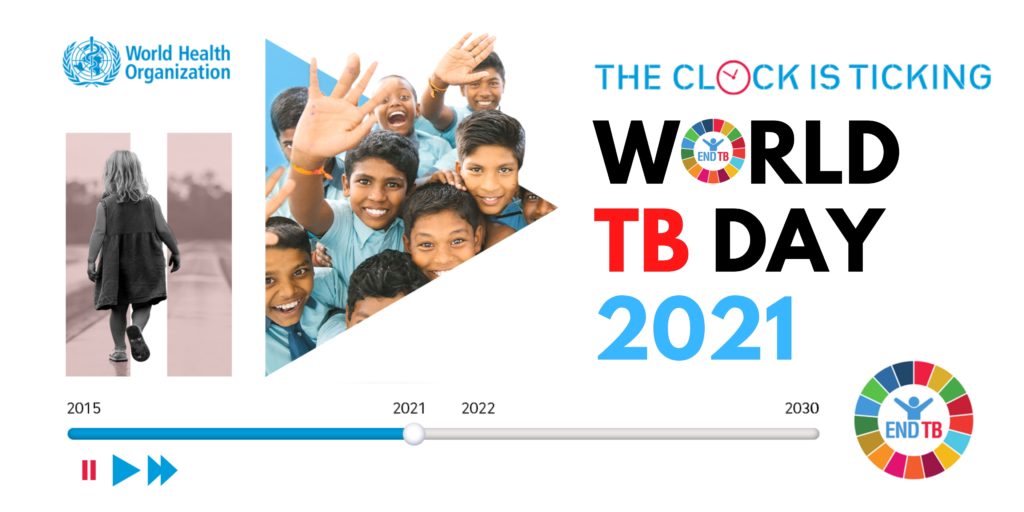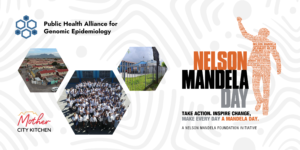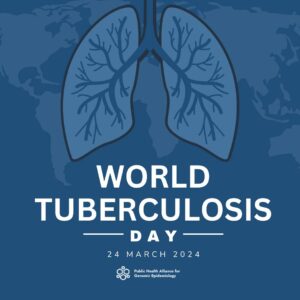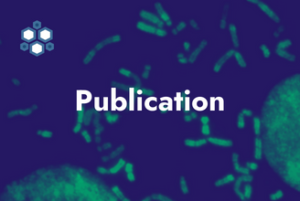
World Health Organization’s (WHO) theme for World TB Day 2021 is “The Clock is Ticking”. This relays a sense of urgence amongst world leaders- sustainable development goal (SDG) 3.3– and in the African region to act on ending TB by 2030. In 2019, the world’s population was estimated to be 7.7billion and an estimated 10 million people fell ill with TB with at least half a million people developing drug-resistant TB.
As a global consortium driven towards a rapid global genomic and public health response to disease outbreaks, the Public Health Alliance for Genomic Alliance (PHA4GE) describes its understanding of TB and measures to end TB:
What is TB and what are the different types of TB?
TB is a contagious infection that attacks your lungs. The infection is caused by a bacterium called Mycobacterium tuberculosis. The infection can spread to other parts of your body – brain and the spine.
What makes TB a public health concern?
The bacterium is transmitted when you cough or sneeze. The droplets in the air will transport the bacteria to another person who inhales it. The treatment is compromised when the bacterium is resistant to antibiotics or when the bacteria hides in the human body i.e., the bacteria is latent. The drug resistance or the presence of latent TB means that patients are not adequately treated and they continue to be a reservoir for spreading the infectious bacteria. The harsh side effects of TB medication means that people potentially stop taking their tablets and will not recover from the disease and infect more people.
What is the most effective method/are the most effective methods to detect drug resistant TB? Where and who can run these tests?
Laboratory tests are done using the sputum of a suspected patient to identify if they harbor the bacterium. This is done by testing for specific genes that belong to the Mycobacterium tuberculosis. These tests are usually initiated when a clinician suspects infection based on a chest X-ray and clinical features like persistent coughing, fatigue and or weight loss.
The field of diagnostics is evolving rapidly and more and more attention is given to the use of DNA sequencing methods to better understand and/or explain the identity of the TB bacterium. This means that scientists are looking at better ways to classify drug resistant TB beyond the core genes that are tested in diagnostic labs. More and more evidence is being collated to show which genes are responsible for the resistance to various antibiotics. Moving these research studies to routine validated clinical assays/experiments is a topic that is actively being pursued globally.
Besides detecting drug resistant TB, what are the other benefits of using whole genome sequencing?
The current COVID-19 pandemic has highlighted the use of genome sequencing data to study disease transmission. In the same way, the genetic code (fingerprint) of the bacterium responsible for TB can be used to compare with bacteria isolated from different patients to understand the transmission of the disease or the epidemiology of the disease.
In your opinion, what actions can be put in place for whole genome sequencing to be widely used in public health laboratories?
Translating research into public health utility requires that we have datasets and protocols in place that are validated and reproducible. In the context of whole genome sequencing, we need to ensure availability of appropriate infrastructure at the level of experimental labs (sequencing capability) and computational capacity i.e., maintenance of analytical methods that are validated for clinical diagnostic use. In the context of Public Health Alliance for Genomic Epidemiology (PHA4GE), we aim to develop standards and analytical packages that can be adopted, with ease, by public health laboratories. We are achieving this by establishing partnerships with public health institutes so that we can co-develop these interventions and transfer skills.



